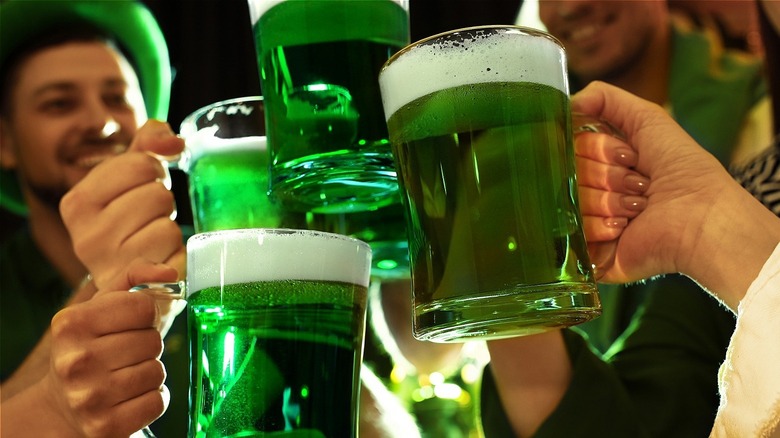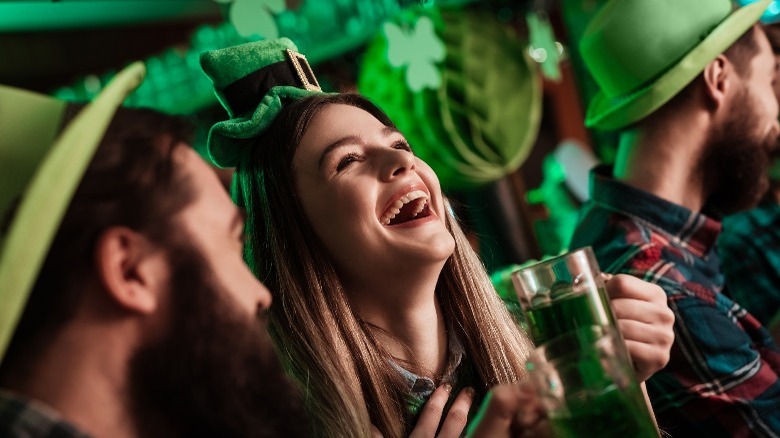The Unexpected Person Who Invented Green Beer
Green beer is often associated with St. Patrick's Day and the groups you see ordering it by the pitcher for the holiday's gatherings. But even with that Irish connection, you might be surprised to find that the concept of green beer was invented far from Ireland, in a rather unexpected place, and by the hands of a someone completely unrelated to the alcoholic beverage industry.
Beer, in general, has taken a few turns since its first known appearance with the Sumerians around 4000 B.C., per Brews Cruise. There is also evidence of its existence in early Rome, Babylon, and Greece. In more modern times, beer is a bastion of culture in countries like Belgium, Germany, and the Czech Republic. Additionally, it defines certain aspects of American history, per the Alcohol Professor.
Of all its varieties — whether the dark robust flavors of stouts, the sweet undertones of German Weiss beer, the more formidable Belgian style that quickly turns the joints to jelly, or the hybridized versions with coffee infusions – green beer may rank among the wildest.
The who and where of green beer
Green beer is not a sophisticated brew, as its appearance does not correlate to any green-related tastes like electric green M&Ms, Granny Smith apples, or wasabi. It is simply a pale-colored beer with a drop of green food coloring administered at the bartender's discretion, per the Spruce Eats. But, even with its simplicity, it has made a leap of improvement to get to its current state from where it started.
Green beer originated in New York, a place of many firsts but not the locale you would expect for its birthplace. As to its creator, green beer was not the concoction of a brewmaster but rather a coroner. This jack-of-more-than-one-trade went by the name of Thomas Hayes Curtin, and, rest assured, he was of Irish descent, per the Smithsonian Magazine.
The coroner unveiled this invention in 1914 at a Bronx social club on St Patrick's Day. When questioned, he elaborated that he added what was the equivalent of a laundry bleach called "wash blue" (via Irish Central). Anyone conscious about their health at that event might have sipped their drink with trepidation while pondering the irony of the inventor's full-time occupation.

